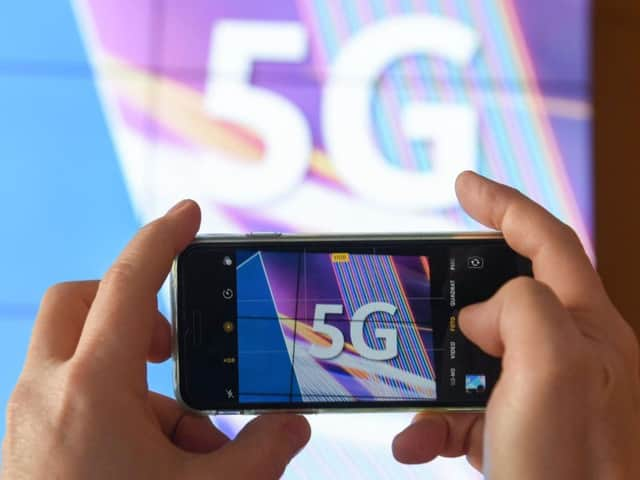The benefits of 5G have aroused the curiosity of people, who want to know what impact the technology will have on their daily lives and on the business world.
5G can bring faster download speeds and other benefits, including for businesses. With 5G, organizations will be able to offer innovative and personalized services to their customers and improve international productivity.
The new network can even have an impact on other technologies, such as the Internet of Things, for example.
In the following article, we explain more about this new technology, how it will affect our lives, and what its main advantages are.
What is 5G technology?
For those still wondering what 5G technology is, we can explain: it is the next generation of mobile internet networks, an evolution of the 4G connection that brings faster browsing speed to devices.
This innovation can greatly improve connectivity, stability, and internet coverage for mobile devices such as smartphones and tablets, for example.
In addition, 5G can also contribute to the development of the Internet of Things. With this, devices will be able to communicate with each other.
An example of this is a smart refrigerator that shops for missing items. This kind of solution is already changing the way we live.
As the benefits of 5G become more popular and widespread, new services can be offered and new possibilities become real.
How will 5G work?
Generally speaking, 5G technology uses a higher frequency of radio signals than its predecessors to function.
This means that while an older network might struggle to send data quickly over long distances, the 5G connection can bring data from far away at a much higher speed.
To understand how this process happens in practice, we need to talk about the 5G bands: the bands are the frequencies at which the network operates, i.e. the path the internet waves travel to reach the devices.
In Brazil, the 3.5 GHz band is the main one. It is responsible for allowing faster connections over long distances.
In addition, we have the 26 GHz band, also called the millimeter band. This guarantees minimum response time (latency) between one device and another, but has a shorter range than the main frequency and therefore requires the installation of more antennas.
With this in mind, it is easier to understand how the technology will work in Brazil and what the benefits of 5G will be for the population and for companies.
To begin with, the new generation of internet will be available in two forms of connection: standalone (SA) and non-standalone (NSA).
Let’s understand the difference between them:
- standalone connection: this is the “pure” version of 5G, which offers high speed and very low response time;
- non-standalone connection: although it is also high-speed, it has a slightly longer response time. In practice, it mixes a part of the 4G structure with another part of the 5G structure.
Differences between 5G and 4G
The new mobile network technologies are evolving with increasing speed. 4G already offers adequate internet speed and quality for the main applications in everyday use.
4G first appeared in Japan in 2010, bringing the possibility of video on cell phones and optimizing access to many new applications that needed more speed.
The new network will offer a new universe of possibilities, with reliability never before experienced.
In practice, 5G Internet provides a 20x increase in speed over 4G. In other words, the new connection will be able to compete with fixed broadband services.

But the big difference will be in the stability of the internet, offering a more reliable and fluid connection.
The main benefits of 5G
Internet technological innovation needs to keep pace with the evolution of other technologies. Society 5.0 is already a reality and increasing demands that its routine is facilitated by technology.
Therefore, the development of this new technology in Brazil and in the world is very important. Here are some of the main benefits of 5G:
Greater Capacity
With a more powerful network, it is possible for more people to connect at the same time without generating instability and loss in internet speed.
Therefore, the fifth generation has more capacity to handle simultaneous use of the network.
Better stability
Another point that can also improve with 5G is the stability of the connections, avoiding the constant signal drop.
This will make it much easier to use the network, especially in operations done in real-time.
More Speed
As mentioned earlier, speed is one of the most expected changes and one of the biggest benefits of 5G, as it should have a significant increase over the fourth generation.
With this, it will be possible to watch videos faster and play games on mobile devices without crashing, among other activities that we already perform today.
